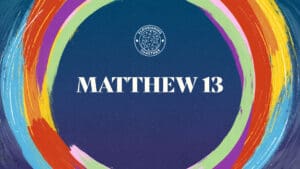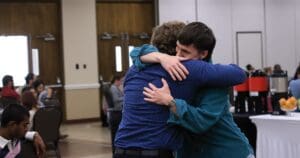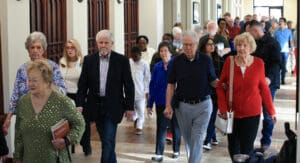
I lived in a two stop light town in Tennessee. Actually, I lived 15 miles outside of the two stop light town on a farm of 165 acres we had inherited from my great aunt, Aunt Mae. Aunt Mae was widowed early, raised her children on her own, but became a savvy business woman. While my brother was my maternal grandmother’s favorite, and my sister was my paternal grandmother’s favorite, I was Aunt Mae’s favorite.
She was a gentle woman who always had a wooden bowl filled with the small sized chocolate bars on the coffee table in her home she had built by herself. Legend has it she inspected every board as it came in and rejected any wall stud that had a knot in it. She cooked huge meals and would never watch company leave as she considered it bad luck. She would come to the porch, hug you goodbye, then turn her back and walk inside as we loaded the car and backed out of her driveway. And despite the fact that she amassed a farm of over 5,000 acres and was one of the wealthiest members in our family, she only gave me $5 in my birthday card.
Brownsville was a town of 10,000 located about an hour outside of Memphis. A small town isolated by geography and in many ways, time. There were many small-town traditions that still linger to this day: a homecoming parade where the entire city shows up to attend, the annual Peach Festival in the summer celebrating the beloved fruit grown in acres and acres of orchards around the area, and there is still, to this day, only one high school in town.
In 1985, I was a freshman in high school. And although our small town was isolated from much of the world, we did know about the famine in Ethiopia. Much of Ethiopia existed on subsistence farming. Subsistence farming means farming to supply the needs of your family without much left to sell at market. What that means in practical terms is you grow food and your family eats. And if there is a drought and unfavorable weather, you do not grow food…and your family does not eat. It’s one of the harsh realities of living there, and in 1985, there was a severe famine.
It was one of the most severe famines in a century, and 7.75 million people were affected. Estimates of deaths ranged from 300,000 to 1.2 million. 2.5 million Ethipians were internally displaced, and 400,000 refugees left the country. 200,000 children were orphaned.
This was when “We Are the World” was recorded and released. The song was a combined effort of lots of popular singers of the time, and the song raised millions for famine relief. It was on the radio all the time. And in an era where fewer news stories seemed to exist and there were fewer news outlets, the story of the Ethiopian famine was headline news daily.
In the mix of all this, I found myself moved. I couldn’t imagine the pain these families were going through, and I wanted to do something. I wasn’t sure what I could do, but started talking to my friends. We were high school students in a small town in West Tennessee, but we were resolved to do something.
So, we did.
Melanie Able was a friend from school and my home church, Brownsville Baptist Church. We decided we would form a group called TASK: Teens Against Starving Kids. I smile when I think about the naïve title we came up with, and I can’t even recall how we came on the title, but I also smile that our young hearts wanted to do something. We would hold road blocks where we would ask for donations.
Like many small communities in the deep south, our city had a City Square in the middle of town. Our City hall was in the middle of the square and there was a one way street that circled the square. Historic businesses surrounded the square: The Economy Store where you could buy a new dishwasher. Baddours Shoes where I got my suede Bass shoes with the preppy green tag at the heel. Livingstons Furniture where I would go hang out with Mr. and Mrs. Livingston after school. The Sears Store my parents owned. The Ritz Movie Theater where I stood in line to watch the original Star Wars movie when I was in elementary school.
The square was at the top of the hill and had roads feeding in at 6 different spots. It was a nightmare for new drivers as there were cars coming from many directions and only had yield signs and no lights. Remember, our town had two stop lights and they were carefully placed elsewhere. I nearly gave my mother a heart attack here as I was learning to drive on a stick-shift car. I didn’t want to stop on the steep hill so just drove into the square saying “they’ll stop.” There were honks and squealing brakes, but I didn’t have to stop and somewhat successfully merged into traffic.
It was this small town square, the hub of life in our city, where we would hold our road block. So one Friday afternoon, me and all my friends in TASK, stood at all the entrances. We had gathered ice cream buckets and signs and waved to drivers asking them for donations. A window being manually rolled down was our cue: we would run to the car, extending our bucket and thanking them for giving. Pennies. Quarters. One dollar. Two dollars. And a couple hundred dollars from Mr. Peter Mascolo, a generous man in our town who I’m sure wanted to make sure our small efforts were rewarded.
When the day was over, we emptied our buckets and started counting. We had raised $1,000. It seemed like a huge feat at the time. It was more money than we figured we could raise, and we were overjoyed. We sent it off to the World Food Program fund in the United Nations. We had our picture taken and were in the town’s weekly newsletter.
I don’t tell you this for my own attention. I tell you this because you are capable of doing great acts of service. Great acts in small ways. Great acts in large ways. And we serve, because we do it to bring God glory.
I Corinthians 10:31 instructs us: whatever we do, we do it for the glory of God. I don’t even know if as a freshman I connected the dots, but looking back I realized I saw God’s children hurting, so I wanted to do something. And me and my friends, decked out in acid wash overalls and converse high tops, stood around the town square asking for money to feed God’s children. While what we did wasn’t a function of our church youth group, it was rooted in our faith and the desire to serve.
Matthew 7:2 says “For what what judgment you judge, you will be judged; and with the measure you use, it will be measured back to you.” Without going into the original language much, what this verse means is the way we view people, pass judgement and reach conclusions is the way people will view us, pass judgment on us and reach conclusions about us.
Wow. The call to service affects how we view people. About the conclusions we make – and therefore our actions. We are called to serve others: to love, give, comfort, hug, befriend, advocate, fight for justice, give mercy, hope and forgiveness. And then that, in return will be given back to us.
You know the funny thing about the entire story of TASK? I had forgotten it totally. For years, I had totally forgotten about my group of ambitious friends wanting to raise money for Ethiopia. I had forgotten about wanting to help Ethipian kids, until 33 years later, my wife and I stood in Ethiopia, talking to an orphanage director. God brought the story to my mind.
I was in Ethiopia to meet my daughter. I was talking to the director and recalled the story. She said she definitely remembered the Ethiopian famine in the 80’s. Like me, she was in high school, but in Ethiopia. She told us about the famine from a different perspective. I had experienced it from afar; she had experienced it first hand.
And now, 33 years later, we stood face to face telling our stories. And I was reminded, service shapes you. Service lays the foundations for a lifetime, and service can take you to places you never imagined.
I challenge you to look for ways to serve. Look for ways to give of yourself and ask God to use it to shape you…and his Kingdom…forever.
Recent Posts
13 That same day Jesus went out of the house and sat by the lake. 2 Such large crowds gathered around him that he got into a boat and sat…
Much has been written over the past couple of years about loneliness in America. One of the most notable documents on the subject is the 2023 Surgeon General’s…
Have you noticed how rare it is to share a meal with someone new these days? We scroll through food photos on Instagram, watch countless cooking shows, and…
The notification appears: “Memory from 5 years ago.” Maybe it’s a relationship that ended, a career path that didn’t pan out, or a dream that fell apart. We’ve…




